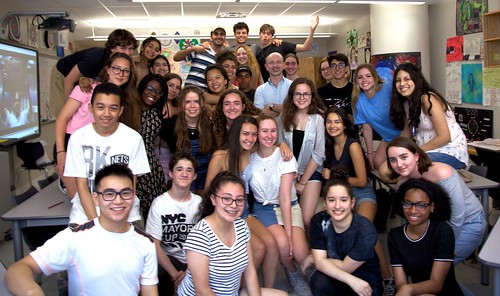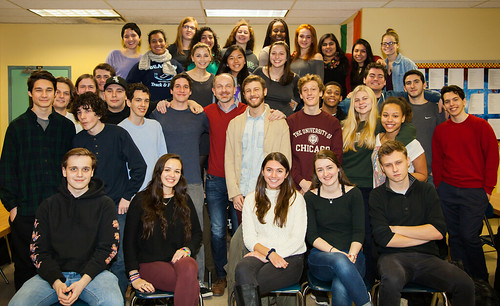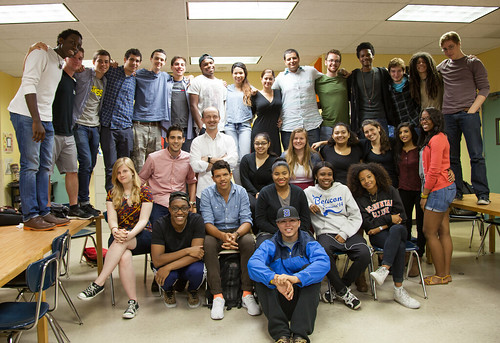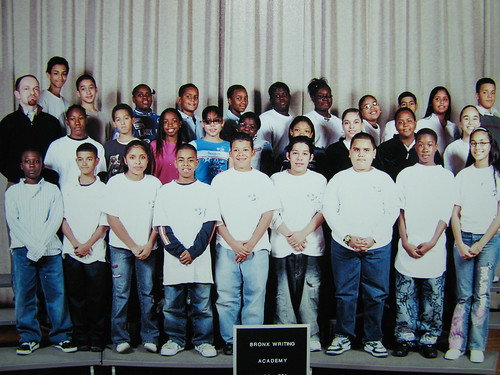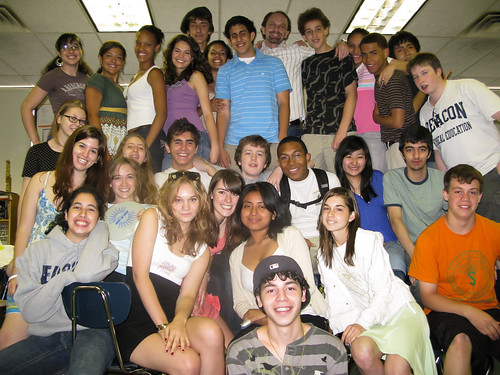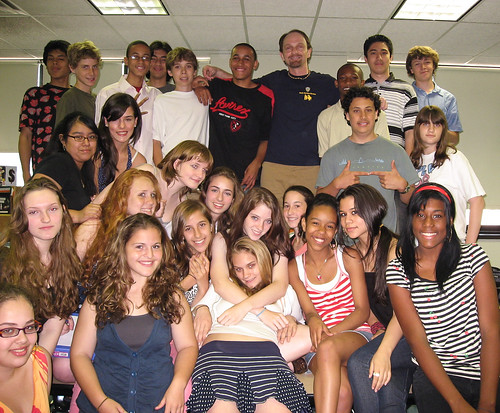The terrifying nature of freedom causes individuals to assimilate into society to shirk their responsibilities. Societies thus take advantage of this by oppressing individuals to maintain stability. 1984, by George Orwell, and Invitation to a Beheading, by Vladimir Nabokov, both exhibit oppressive environments and individuals who accept these societies. The protagonists believe in the ideals and opinions perpetuated by their respective powers, and choose to subject themselves to the oppression put forth by those in control. Jean-Paul Sartre’s essay, “Existentialism is a Humanism”, discusses the freedom and responsibility inherent to humanity. In Orwell and Nabokov’s works, the protagonists, faced with the burden of decision and consequent responsibility, choose to suppress their freedom. Out of fear, not of oppressive forces but of self-dependence, they turn to another to control their lives. Thus they ultimately engage in deceiving themselves and choose lives of bad faith, where they are dishonest with themselves and refuse to embrace despair and anguish. They suppress their individuality to ignore the responsibility inherent to freedom. Both 1984 and Invitation to a Beheading exhibit the intrinsically oppressive nature of society and show that, through an existentialist lens, structured society is unnatural and accepting it is ultimately a form of self-deception as it suppresses an individual’s freedom. [Read more…]
Between the World and Me and Godot Comparative Essay by YP
Between The World and Me and Waiting For Godot: How Escaping Absurdities Obstructs Authenticity
Ta-Nehisi Coates’s Between the World and Me focuses on racism, while Samuel Beckett’s Waiting For Godot, the experience of two men waiting to be saved, yet both texts convey the absurdity of the human condition and mankind’s impulse to find meaning in life. Despite the different illustrations of the difficulty of life, both authors indicate that relationships with love are the most valuable thing humankind can achieve. Coates and Beckett demonstrate how religion and worship are forms of self-deception which people use to escape life’s absurdities, when in reality love should be used in order to embrace them, thus allowing an authentic life.
Read more:
No Exit and Waiting for Godot Outline by G.K.
No Exit and Waiting for Godot Outline
I. In both texts the authors’ ironic use of hell reveals the unreliability and uncertainty in the characters, suggesting that man has been conditioned to turn to others not only to confirm but to dictate his existence, resulting in a cycle of inauthenticity.
II. Sarte uses Estelle’s dependency on mirrors to reaffirm her existence to highlight how man often looks at himself through the eyes of others, even when looking at his own reflection, because he feels the need to appeal to the dictators of his life.
A. “When I talked to people I always made sure there was [a mirror] nearby in which I could see myself. I watched myself talking. And somehow it kept me alert, seeing myself as others saw me…” (Sarte 19).
Read more:
Ivan Ilyich and Siddhartha Comparative Essay by SH
Siddhartha and The Death of Ivan Ilych : Existence through Nonexistence
According to Martin Heidegger, a renowned German philosopher, there are two soul sicknesses of mankind: one is unaware of his existence, and one falls into ‘theyself’ living mostly according to what ‘they’ tell him to do, thus leading an inauthentic life. A life in which one runs away from the confrontation with nonexistence, and becomes egoistic, treating all other life as a means rather than an end. Therefore, only a confrontation with death allows one to exist authentically. An existence in which one sees the unity of all life thus overcoming alienation and egoism, making the most of the limited time in one’s life. In Hermann Hesse’s Siddhartha and Leo Tolstoy’s The Death of Ivan Ilyich , both authors portray protagonists who lead lives filled with inauthenticity, living in a state of ‘theyself’, until confronted with death. Through Siddhartha’s desired suicide and Ivan Ilyich’s untimely fatal illness, both Hesse and Tolstoy suggest that one’s confrontation with death makes him realize the inauthenticities of his life, and thus enables one to live authentically.
Read More:
Siddhartha and The Alchemist Comparative Essay by J.F.
The Significance of Love and Wealth on Human Fulfillment
In their early teenage lives, both Hermann Hesse and Paulo Coelho struggled to cope with their parent’s conflicting outlook on their lives and ultimately, their purpose. For separate reasons, Hesse and Coelho spent time in institutions designed to “reinvent” the individual. The authors endured many months in this compulsory prison yet after release, proved their individuality and perseverance was more than a product of teen angst– they pursued their aspirations. Moreover, Hesse and Coelho’s persistence through a childhood polluted by parental control yet followed by complete success, demonstrates not only the genuine existence of destiny, but also the continuous opportunity to achieve happiness and greatness. Exemplified by the stories of their lives, Hesse and Coelho channel this idea in their works Siddhartha and The Alchemist. Using the wisdom the protagonists obtained from personal journeys, both Hesse and Coelho convey the importance of sacrificing love and common human pleasures to become entirely fulfilled. However, only Coelho advocates an ultimate return to such pleasures suggesting that love and possessions are essential in a truly authentic life. [Read more…]



